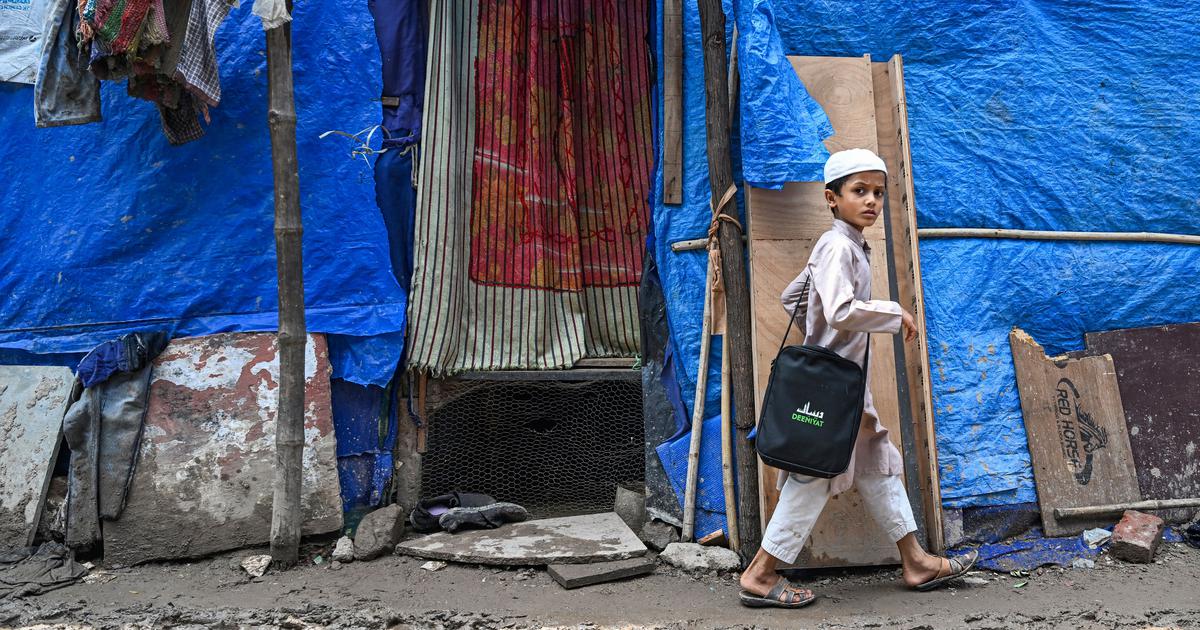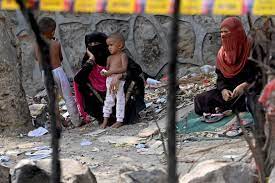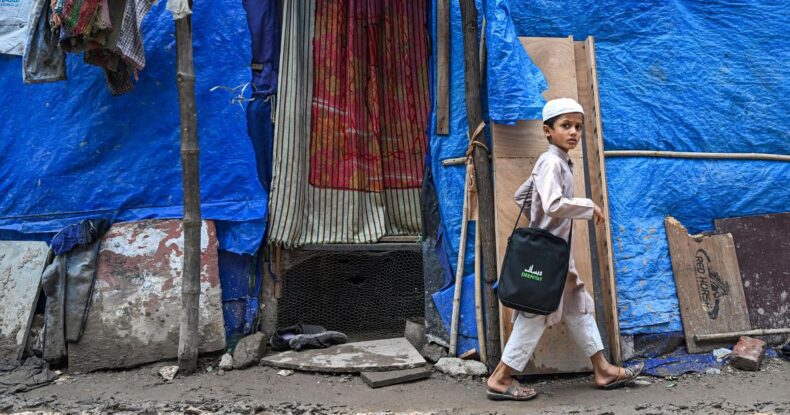Indian police have arrested 74 Rohingya refugees for living “illegally” in Uttar Pradesh. The members of the mostly Muslim Rohingya community were arrested in six towns and cities in the state. Ten of the arrested refugees were juveniles, the police said. The raid was a part of the Anti-Terrorism squad’s drive against illegal refugees.

Who was arrested?
In total, 55 men, 14 women, and 5 children were arrested after they were found living in UP after “crossing the border illegally,” the police said in a statement. According to a report by Scroll. in, at least one of the women is pregnant.
What do human rights groups say?
Activists have condemned the arrests as an arbitrary crackdown on people escaping violence. The Rohingya Human Rights Initiative campaign said the arrested people, after fleeing persecution in Myanmar, had been living in the area for around ten years.
Even after seeking refuge in India, many of the refugees had been doing manual labour like garbage collection, the initiative’s director Sabber Kyaw Min said. He said, “They have only been demanding refuge and an end to detentions,” he added.
Rohingya activists in India have been campaigning against arrests of refugees, demanding the government uphold human rights commitments and its democratic credentials. Kyaw Min called for the protection of the dignity of those arrested since they have only sought asylum in India and have not committed any crime. He added, “Rohingyas are survivors of genocide. They are human beings deserving of basic freedom and dignity given to everyone else.”
Who are the Rohingya refugees, and why are they in India?
The Rohingyas are an ethnic group, majorly followers of Islam. They have lived for centuries in Myanmar, a Buddhist-majority country. They speak Rohingya or Ruaingga, a distinct dialect that is not spoken by other groups in the country. Rohingyas are not considered one of Myanmar’s 135 ethnic groups and have been denied citizenship since 1982 when a new citizenship law was passed. Since then, they have been a stateless minority. As a result, restrictions have been placed on their rights to study, work, marry, travel, practice their religion, and access to health care.
Rohingyas in Myanmar live in the state of Rakhine on the Western coast. Their movement is restricted, and they are not allowed to leave without government permission. They are ghettoized and live in camps without basic services.

Life for Rohingyas is one of strife and violence, because of which hundreds of thousands have fled to neighbouring countries such as India, Bangladesh, and Malaysia over the course of many decades. Refugees have often reported atrocities such as sexual violence, torture, murder, and arson by Myanmar security forces. The government has consistently denied accusations of ethnic cleansing. Some of the military generals are being tried for genocide at the International Court of Justice.
The 1951 UN Refugee Convention spells out the rights of refugees and states’ responsibilities to protect them. However, India has not signed the convention, nor does it have laws protecting refugees.
As of early last year, around 18000 Rohingya refugees lived in India, according to Rohingya Human Rights Initiative co-founder Ali Johar. In recent years, India’s right-wing ruling Bharatiya Janata Party (BJP) has called for the deportation of the refugees. Those living in India have to face hostilities, unexplained fires in their camps, and frequent arrests.













